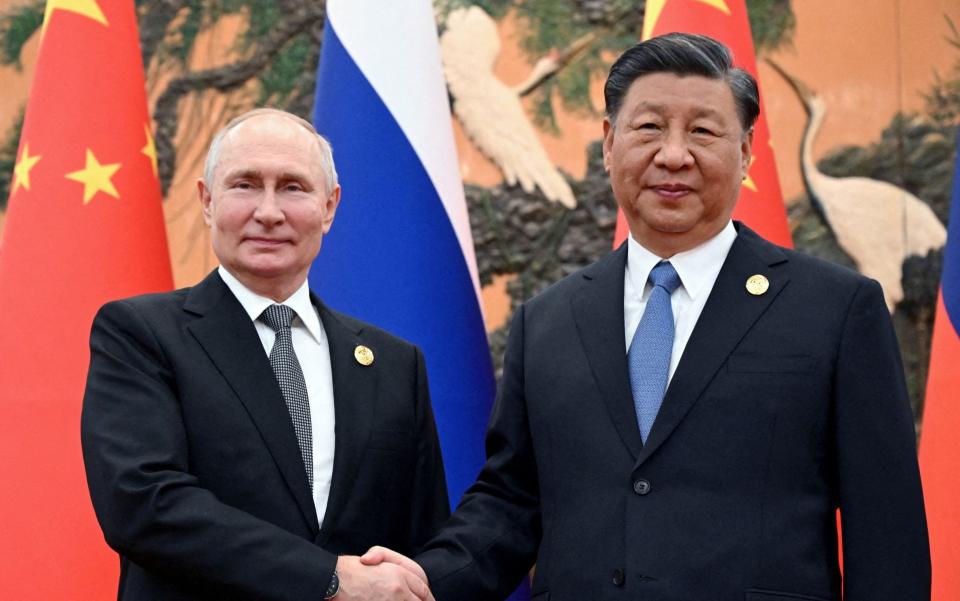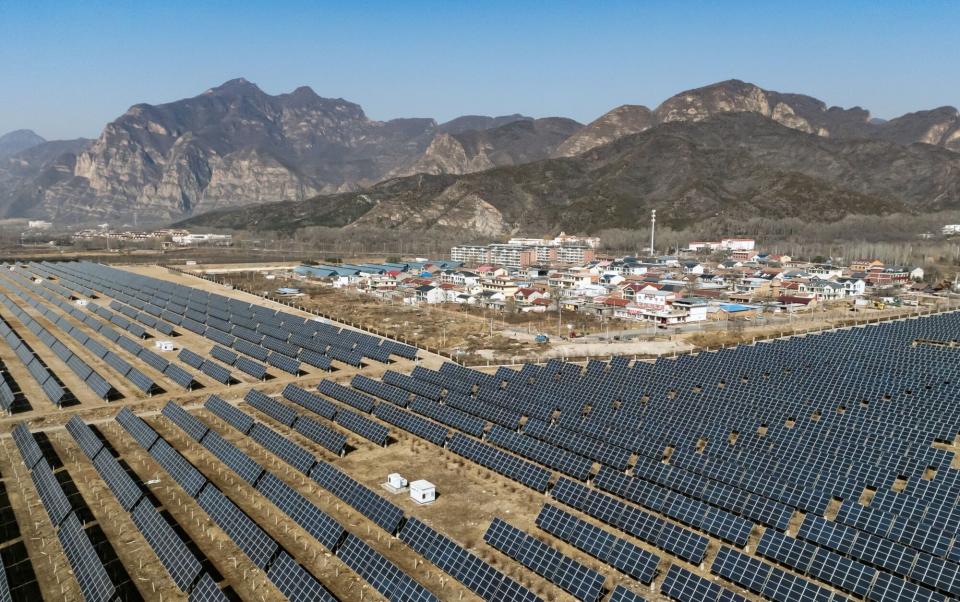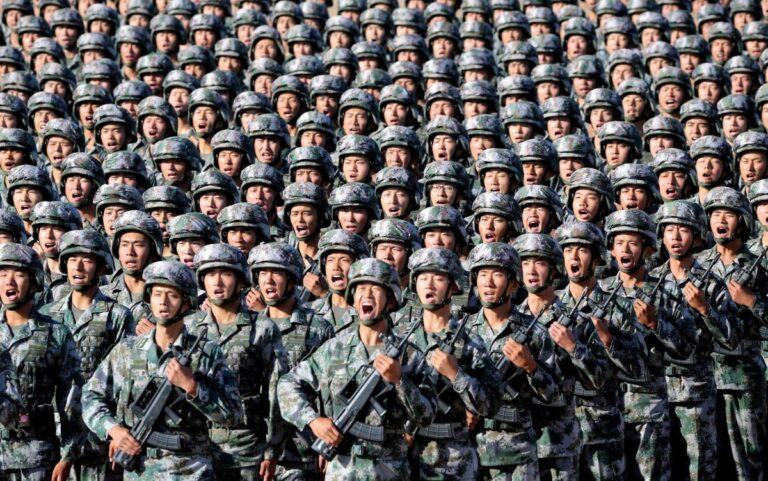Xi Jinping benefited in many ways from Vladimir Poutinethe brutal invasion of Ukraine, including his most important personal goal: to make history as Chinese leader which annexed Taiwan in defiance of the West.
Xi has seen what Western sanctions mean against a brutal aggressor. He has spent the past two years shielding China’s economy from sanctions by every means possible, doubling down on transactional relationships with his acolytes in the so-called “Global South,” securing massive supplies of oil and gas and – more recently – in buy gold on an astonishing scale, even by Chinese standards.
How should the West understand its tactical objectives in all this and, more importantly, what is the strategic context?
First, consider gold. In the last 17 months alone, China’s declared gold reserves have soared 17% to almost 73 million troy ounces, a current value of $170 billion (£135 billion). There are also other indications of additional large-scale off-grid purchases. Meanwhile, China’s foreign exchange reserves have reached their highest level since 2015.
Overall, it looks like a war chest, intended to guard against harsh Western sanctions that, along the lines of Ukraine, would likely follow a Chinese invasion of Taiwan.
The time has long passed – however fashionable it once was in some Western circles – to argue that Xi would never make the mistake of invading Taiwan. The idea was that the Chinese Communist Party (CCP) would have difficulty achieving victory; that it would cost too much blood and money for this fragile regime to survive, even if it did not result in an escalation into regional or global conflict.
Experts lined up to point out that although Xi had ordered his armed forces to be “ready to invade Taiwan by 2027,” this should not be interpreted as implying the intention to do so.
Xi Jinping may well have reached a similar conclusion, based on ground truths, five years ago. But following the rise in competitive tensions with the United States and the West, access to cheap Russian energy on a virtually unlimited scale since the West reduced its imports, Western weakness with regard to Ukraine and the possibility of manipulating relations with Iran and other friends for its own benefit. favor, Xi has adopted a more resilient and relentless strategy.
This approach is part of the notion of “combat readiness,” an expression that Xi uses more and more regularly in his public statements. This is much more than just a military capability: it is a new way of describing the Chinese military concept of “war without limits”. The concomitant goals of “combat readiness” go far beyond even victory over Taiwan, encompassing the notion of triumph in an existential Marxist struggle against all of China’s adversaries and rivals, and the dawn of a new era in which China will be the dominant world power.


A quick overview of current Chinese geostrategic activity suggests that this process is well underway. In the kinetic domain, China is quickly moving towards doubling its stock of nuclear warheads, increasing it from around 500 to 1,000 by 2030, with the goal of reaching 1,500 as soon as possible thereafter. Even as China dissociates itself from its de facto military alliance with Russia against the West, this program clearly aims to shift the balance of nuclear power in favor of authoritarian states.
China’s militarization of space, particularly its anti-satellite capabilities, already risks exceeding the capabilities of the United States and its allies. New missile technologies currently produced in China could be a game-changer in terms of controlling regional and international maritime space. Overall, it is likely that Chinese doctrine on weapons of mass destruction no longer excludes the desire, in the near future, to confront the West in the event of a slide towards open hostilities.
Even though China’s economic strategies have failed to revive domestic growth to levels deemed safe for regime stability, Xi appears willing to risk this decline as long as social stability can be bolstered through digital and repressive measures. other public order measures.
It is redoubling its efforts with reliable foreign suppliers of vital raw materials for industry, energy and food, while continuing to plunder without control threatened natural resources across the world, notably in much of the Pacific , polar regions and the Southern Ocean. Energy security is reinforced by increasing land imports from Russia and Central Asia, with the signing of some major contracts lasting up to 30 years.
Chinese exports of renewable energy technologies are better understood as an extension of strategic influence than as a commitment to combating climate change. China’s favorable trade balance in its economic interconnection with the West has similar political ramifications, as is clear in the case of Germany.


As difficult as it is to confront this multifaceted reality, China’s hybrid espionage, disinformation, influence, and cyber conflict with the West is well underway, with the dual goals of to gather intelligence and establish means to inflict preemptive paralysis and havoc on opponents. ‘ defense infrastructure, energy infrastructure and social order before armed hostilities.
This is why this war chest is important. It is there, like Beijing’s hypersonic missiles and nuclear weapons – not to enable an attack on Taiwan on a chosen date, but to ensure that as the balance of power shifts in China’s favor, that will not be necessary.
Xi is banking on political disarray and disunity between the United States and its Western allies – as happened in Ukraine – and if his plans continue unchecked, he will be able to absorb Taiwan without a fight. This is the geostrategic challenge that China now poses to an already fragmented, misdirected and introspective Western alliance. It is worth questioning the timing of Xi’s invasion plans.


